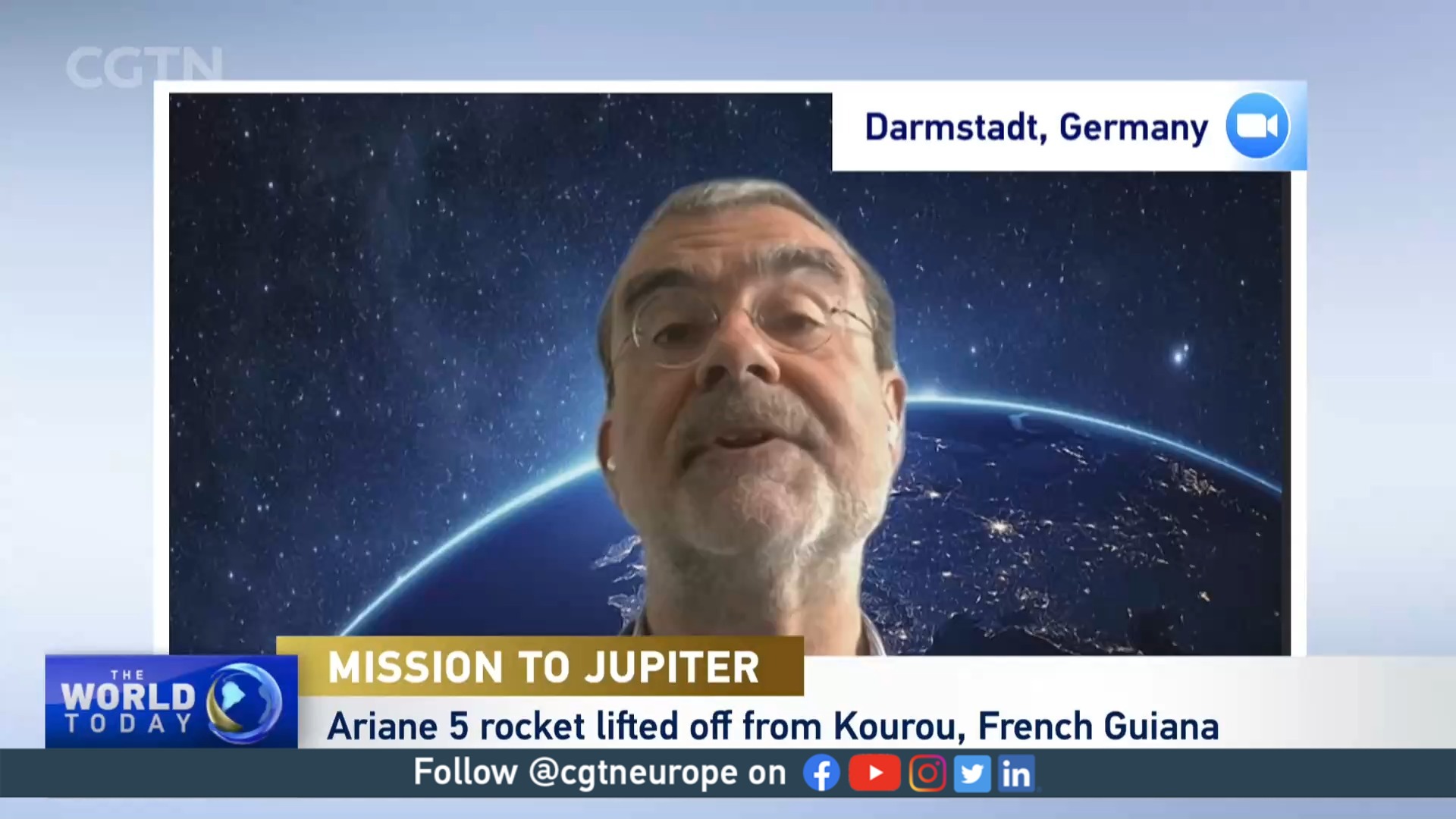04:22

Jupiter and Saturn are the two planets in the solar system with the best chance of finding signs of life, said a European Space Agency (ESA) boss.
The ESA's JUICE space probe successfully took off on Friday for a mission to discover whether Jupiter's icy moons are capable of hosting extra-terrestrial life in their vast, hidden oceans.
Fabio Favata, head of the coordination office at the ESA, said that Jupiter and Saturn are the "ideal places" to look for life.
He told CGTN: "Signs of life is very ambitious, but certainly liquid water is a prerequisite for life as we know it. Together with other ice moons of Jupiter and Saturn there's plenty of it.
"So it's certainly the ideal place in which to look for such life in the solar system."
READ MORE
Türkiye prepares for momentous elections
Climate changes forces Loggerhead turtles to migrate
World participates in Earth Hour – but what is it?
JUICE, which stands for Jupiter Icy Moons Explorer, will orbit Ganymede, the first ever spacecraft to orbit the moon of another (planet in the) solar system and will map the surface. The aim is to discover the thickness of the ice and therefore try to establish if this could be a potential extra biological site in our solar system.
While much attention has been put on finding life on Mars, Favata believes that it is more likely to be discovered on Jupiter or Saturn.

The ESA's JUICE space probe successfully took off on Friday. /Reuters
The ESA's JUICE space probe successfully took off on Friday. /Reuters
He continued: "I do believe that the icy moons of Jupiter and Saturn are our best bet because of the liquid oceans under the surface. Now, for example, Callisto, which is one of the moons of Saturn, has already shown interesting plumes with evidence of organic material.
"If you ask me whether it is going to be Jupiter or Saturn, I think the odds are even. But those are my best bets for extra biological sites in the solar system."
The JUICE space probe launched on an Ariane 5 rocket from Europe's spaceport in Kourou, French Guiana, after a previous attempt on Thursday was called off due to the risk of lightning.
A little under half an hour later, the uncrewed six-ton spacecraft separated from the rocket at an altitude of 930 miles, which prompted an outbreak of applause at the center.
After a few tense minutes, ground control then received the first signal from the spacecraft.
The Jupiter Icy Moons Explorer will take a long and winding path to the gas giant, which is 390 million miles from Earth.
"It's a long trip and it's a complicated one," said Favata. "Getting to Jupiter actually requires lots of energy, and therefore, that's why we opted for a bit more complex trajectory, which makes use of the gravitational energy of a number of bodies in our solar system, including our own gravity."
The spacecraft will also use solar panels to create energy to power itself towards its target.
When the probe finally enters Jupiter's orbit in July 2031, its 10 scientific instruments will analyse the solar system's largest planet as well as its three icy moons - Callisto, Europa and Ganymede.
Ganymede is the solar system's largest moon and the only one that has its own magnetic field, which protects it from radiation.
The moons were first discovered by the Italian astronomer Galileo Galilei more than 400 years ago but were long ignored as potential candidates for hosting life.
However, the discovery of huge oceans of liquid water - the main ingredient for life as we know it - miles beneath their icy shells has made Ganymede and Europa prime candidates to potentially host life in our celestial backyard.
Source(s): AFP